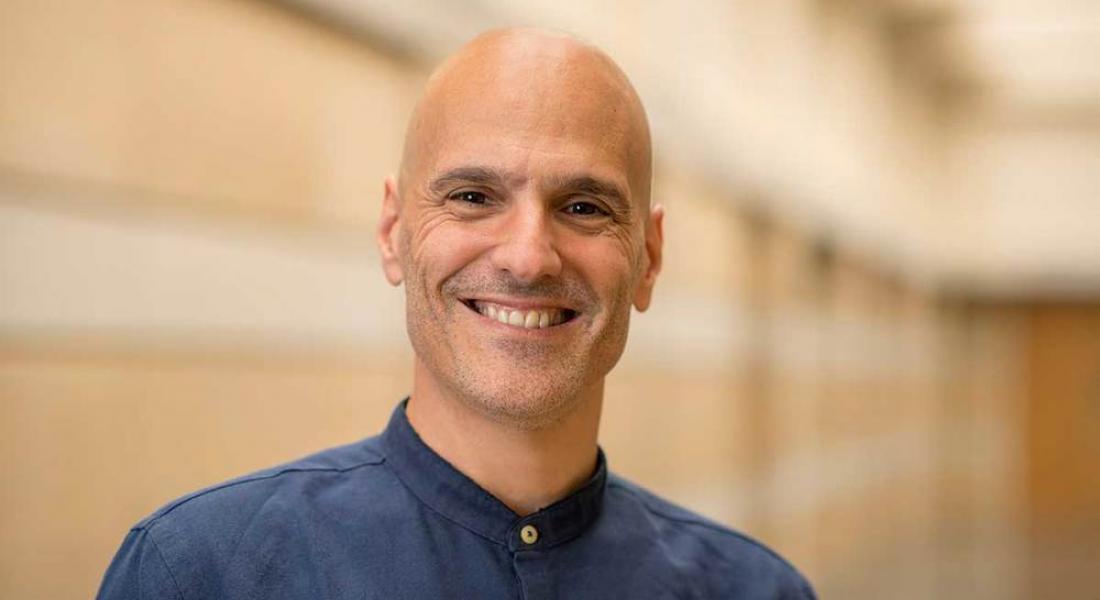
Kellogg Institute Faculty Fellow Aníbal Pérez-Liñán is a professor of political science and global affairs at the University of Notre Dame, where he holds a joint appointment in the Department of Political Science and the Keough School of Global Affairs. He is a former distinguished research affiliate, visiting fellow, and dissertation year fellow of the Kellogg Institute for International Studies. His research focuses on democratization, the rule of law, political stability, and institutional performance among new democracies.
In the conversation below, Pérez-Liñán discusses his research on government reparations for human rights violations and his role in partnerships aimed at promoting human rights.
Q: Please describe your research interests. What inspired you to study these themes, and how have you had a chance to explore them in your recent work?
A: I grew up in Argentina during an age of military rule, and have always been interested in questions of democratization and the rule of law in Latin America. And for the past three years, I have collaborated with [Kellogg Faculty Fellow] Diane Desierto here at the Keough School of Global Affairs and the Notre Dame Law School to investigate a pressing issue: how can governments repair the human rights violations they have committed in the past? This question connects international law and domestic politics.
Recently, this question inspired me and colleagues here at the Keough School to organize a series on the inter-American human rights system, a regional arrangement to promote human rights among countries of the Organization of American States. The system was created in 1948 and it has evolved over time. Today it has two main bodies, the Inter-American Commission on Human Rights (IACHR), in Washington, DC and the Inter-American Court of Human Rights, in San Jose, Costa Rica. The Commission is the first stop for victims of human rights violations who cannot find justice in their own countries.
The IACHR hosted its 182nd period of sessions in Washington, DC, in December. We saw this as an opportunity to partner with the organization and support its work. The series taught us some important lessons and showed ways in which we can help. For example, the IACHR has identified good practices – such as the signing of compliance agreements – that governments can adopt to provide reparations for victims. But assessing the effectiveness of those measures is hard. The Keough School can help with that, and use its expertise to support the cause of human rights through knowledge.
With the help of the Keough School’s Washington Office and the Max Planck Institute for Comparative Public Law and International Law (our main partner in Europe), we organized three panels that debated critical issues: best practices to implement human rights reparations, emerging research in this field, and principles of academic freedom. Working with our partners was the best part of the series.
Q: You are involved with the Notre Dame Reparations Design and Compliance Lab. Could you talk a bit about the lab and what it does?
A: The Reparations Lab is funded by the Kellogg Institute for International Studies, with additional support from the Keough School’s Klau Center for Civil and Human Rights. We develop methodologies to assess government compliance with the reparations ordered by international bodies such as the IACHR. The project combines Diane Desierto’s incredible expertise as an international human rights lawyer with my data analysis skills as a political scientist. We engage with Notre Dame students at all levels: undergraduates, LLMs, JSDs, PhDs. It is a lot of fun. It’s quintessentially Keough School – interdisciplinary and oriented towards the production of socially useful research.
Q: Are there upcoming research projects and collaborations you would like to highlight?
A: The IACHR recently selected our lab as one of the academic partners to present papers assessing the impact of the its activities and resolutions. This call was part of a new Observatory of Impact, launched by the Commission last year. It is an exciting opportunity.
We are working with Anayanssi Orizaga and Mariana Brocca (both Notre Dame LLM alumni) to prepare an evaluation of compliance agreements, one of the good practices recommended by the Commission, by the end of March. We are also exploring the possibility of a cooperation agreement between the Keough School and the Inter-American Court of Human Rights, the second pillar of the system. There is a lot of work ahead, and we hope that some of the people reading this will join us.





